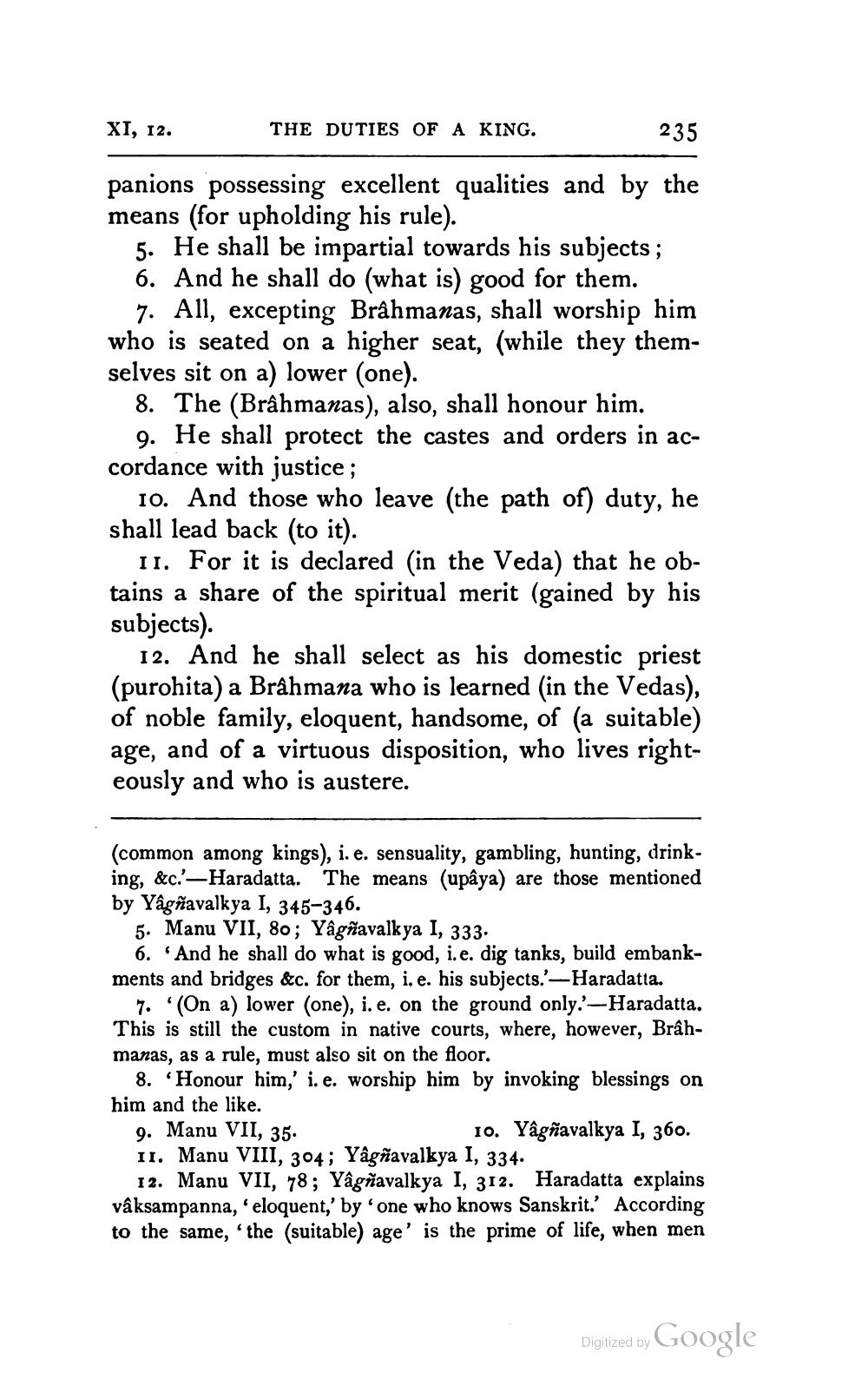________________
XI, 12.
THE DUTIES OF A KING.
235
panions possessing excellent qualities and by the means (for upholding his rule).
5. He shall be impartial towards his subjects; 6. And he shall do (what is good for them.
7. All, excepting Brahmanas, shall worship him who is seated on a higher seat, (while they themselves sit on a) lower (one).
8. The (Brâhmanas), also, shall honour him.
9. He shall protect the castes and orders in accordance with justice;
10. And those who leave (the path of) duty, he shall lead back (to it).
11. For it is declared in the Veda) that he obtains a share of the spiritual merit (gained by his subjects).
12. And he shall select as his domestic priest (purohita) a Brâhmana who is learned (in the Vedas), of noble family, eloquent, handsome, of (a suitable) age, and of a virtuous disposition, who lives righteously and who is austere.
(common among kings), i. e. sensuality, gambling, hunting, drinking, &c.'—Haradatta. The means (upâya) are those mentioned by Yâgñavalkya I, 345–346.
5. Manu VII, 80; Yâgñavalkya I, 333.
6. And he shall do what is good, i.e. dig tanks, build embankments and bridges &c. for them, i.e. his subjects.'-Haradatta.
7. (On a) lower (one), i. e. on the ground only.'-Haradatta. This is still the custom in native courts, where, however, Brâhmanas, as a rule, must also sit on the floor.
8. Honour him,' i. e. worship him by invoking blessings on him and the like. 9. Manu VII, 35.
10. Yâgñavalkya I, 360. II. Manu VIII, 304; Yâgñavalkya I, 334.
12. Manu VII, 78; Yâgñavalkya I, 312. Haradatta explains vâksampanna, eloquent,' by one who knows Sanskrit.' According to the same, 'the (suitable) age' is the prime of life, when men
Digitized by Google




